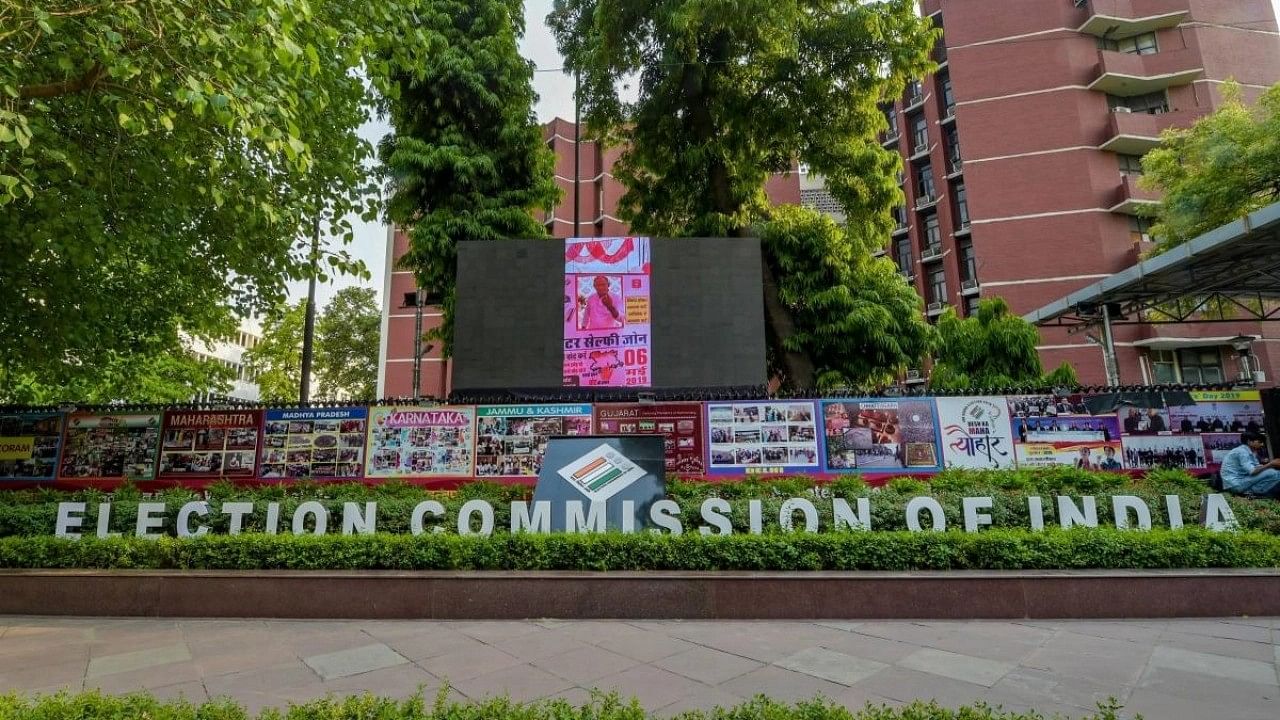
Election Commission of India.
Credit: PTI file photo
Long poll schedule raises questions
The schedule announced by the Election Commission for elections to five state Assemblies has again raised questions about the Commission’s penchant for unnecessarily long campaign periods. The election calendar stretches from November 7, when polling will be held in parts of Chhattisgarh and Mizoram, to December 30 when Telangana will go to the polls. Polling in Madhya Pradesh and Rajasthan and the remaining Chhattisgarh areas will be held in between, and counting will take place on December 3. Four of these states are adjacent to one another and make a continuous geographical bloc, making movement of security forces easy. Only Mizoram, a small state, is at a distance. Usually, elections are spread over a period to facilitate the movement of security forces, but that reason is not valid here as just four contiguous states are mainly involved.
When it takes over three weeks to hold Assembly elections in just five states, how long will it take to hold simultaneous Lok Sabha and Assembly elections in 28 states and eight Union Territories? The logistics of the election process and its management will be extremely difficult and the polling dates across the country will be stretched over months. This will create an unequal playing field, giving an unfair advantage to the more resourceful parties. This is apart from other disadvantages of the ‘one nation, one election’ idea, like its inherently anti-federal character and bias against smaller parties. The simultaneous poll proposal now being pursued by the government covers elections to local self-government bodies, too. If elections to 679 Assembly seats are stretched over three weeks, it can be imagined how much time it will take to hold elections for 4,123 Assembly seats, 543 parliamentary seats and tens of thousands of local council seats. These numbers will increase if delimitation of seats takes place.
In the present round of elections, Mizoram and parts of Chhattisgarh will have to wait for three weeks for results after the polling day. Madhya Pradesh will have to wait for over three weeks and Rajasthan for over a week. The model code of conduct comes into effect as soon as the schedule is announced and that affects governance in states. States which have a longer campaign period are affected more than others. Small parties, which have less resources, will find it difficult to sustain a long campaign. The suspicion that these long campaign periods are meant to help the Prime Minister run an extensive campaign has arisen once again. The Election Commission has been criticised in this respect in the past. The fact that it changed the polling date in Rajasthan, and there are demands for the same in Mizoram, too, also shows a lack of application.